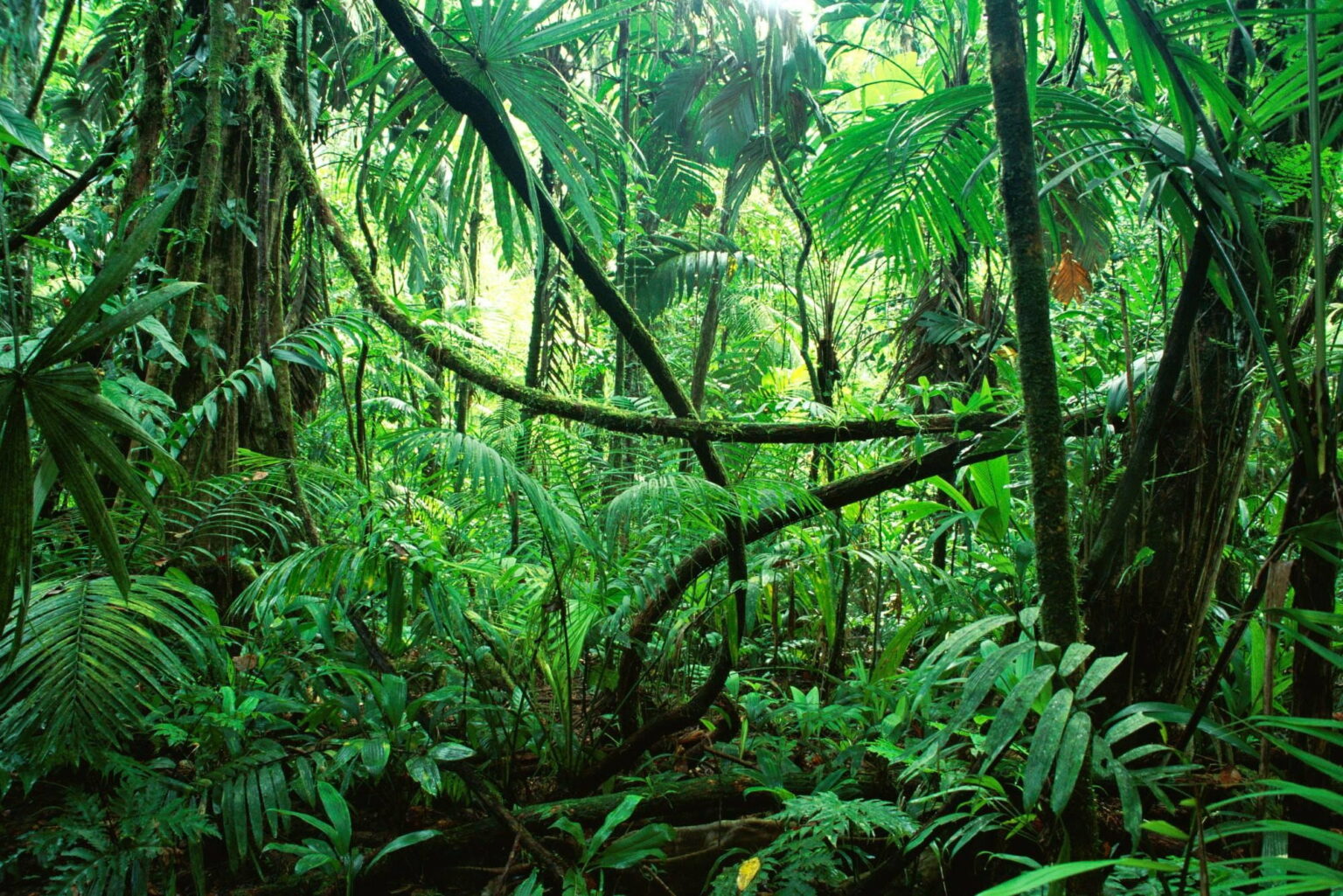The eating of wild meat in tropical forests could generate carbon credits through avoided emissions, a new paper has claimed – but other academics have said the study shows the limitations of a “carbon-only” approach.
The research, published in science journal Nature on Thursday, analysed studies conducted between 1972 and 2019 on the diets of around 150,000 residents from 49 tropical forest sites, including in Nigeria, Ghana, Tanzania, Brazil, Peru and Bolivia.
Authors from the University of East Anglia (UEA) and Brazil’s Universidade Federal do Mato Grosso do Sul found that communities consuming wild meat may “spare” the equivalent of 71 metric tonnes of carbon dioxide per year compared with a scenario where wild meat was replaced with beef, or three metric tonnes of CO2 per year if replaced with poultry.
The paper also claims that supporting continued sustainable wild meat consumption by these communities could help generate up to $3 million (£2.2 million) in carbon credit revenues, and incentivise forest conservation.
‘Unsound’
Co-author Professor Carlos Peres said the results “clearly illustrate the potential value and importance of considering sustainable game hunting within the REDD+ political process at both national and international scales”.
The term REDD+ refers to the United Nations framework to reduce emissions from deforestation and forest degradation, and the conservation and sustainable management of forests and forest carbon stocks.
Under the United Nations emissions carbon trading scheme, developed countries are theoretically able to mitigate greenhouse gas emissions by paying for carbon “credits”, with each one representing one tonne of carbon dioxide that has been “avoided” elsewhere.
However, critics have raised concerns over the environmental integrity of chosen projects, the difficulties of measuring carbon storage or assessing whether projects would have gone ahead without the schemes, and the low price of carbon credits.
Authors of this study claim that the United Nations Framework Convention on Climate Change (UNFCCC) has so far failed to recognise and incorporate subsistence hunting and the role of wild meat in forest governance.
But the paper’s suggestion of applying carbon credits to bushmeat consumption has attracted fierce criticism from a number of academics.
Jennifer Jacquet, associate professor of environmental studies at New York University, described the study as “absurd”.
“The premise here is that we should pay people for eating wild animals, on the grounds that if they were not eating wild animals they would be eating cows. In addition to being silly, this is a very unsound empirical claim,” she told DeSmog.
“It’s disappointing to see any conversation about the food system so exclusively focused on carbon and carbon markets,” she added. “We have to consider a much broader range of issues about any food system’s impacts — whether it’s the impacts on farmed animals or wild animals, broader ecological effects, or, of course, the issue of distribution.”
‘Carbon-Only Approach’
The authors briefly address potential concerns from promoting sustainable bushmeat hunting, such as the risk of illegal hunting and the spread of disease. The paper suggests that rather than a “blanket ban” on subsistence hunting and wild meat trading, hunters could be trained to monitor animal health and game populations.
But a number of researchers say the potential transmission of zoonotic diseases was virtually “ignored” by the paper, despite the probable origins of the ongoing Covid-19 pandemic in animal markets, which have led to calls for a total ban on the wild meat trade.
Matthew Hayek, assistant professor of environmental studies at NYU, criticised the study for “embodying the absurdity of a carbon-only approach”.
“The authors want to subsidize bushmeat consumption because it spares deforestation/GHGs?!,” he wrote on Twitter. “Pandemic zoonotic diseases from bushmeat are an existential risk on par with climate change.”
Jan Dutkiewicz, a policy fellow at Harvard Law School researching large-scale conventional meat production, said the “very poor and myopic framing” of the study had “ignored the zoonotic disease emergence risk of bushmeat hunting” as well as seeking to commodify traditional hunting by binding it to international carbon credit markets.
“This is based on the dubious assumption of emissions savings from not making an assumed switch to conventional cattle meat, the highest possible emitting animal species,” Dutkiewicz told DeSmog. He added that the study only applied to 150,000 people, meaning the overall climate impact is “virtually meaningless”.
‘Major Opportunity’
Peres rejected the accusations raised against the study.
Responding to criticisms about the limited reference to the potential of wild meat trade for zoonotic transmission, he said the paper only attempted to deal with the “spared carbon footprint value of wild meat consumption, rather than other ecosystem services or disservices, including any possible zoonotic transmission”.
He told Desmog the authors had identified a “major opportunity to implement local governance of sustainable wild meat hunting, which will otherwise continue to happen in any case, largely in low-governance tropical forest systems”.
“We never say we should “pay people” to either eat or not eat wild meat, but this is a fact of life that will continue to happen in any case whether or not we like it,” he added.
“We are not promoting hunting as a carbon mitigation option, but only pointing out that this is widespread and targets extremely low-carbon animal protein compared to the livestock sector.”
Subscribe to our newsletter
Stay up to date with DeSmog news and alerts







